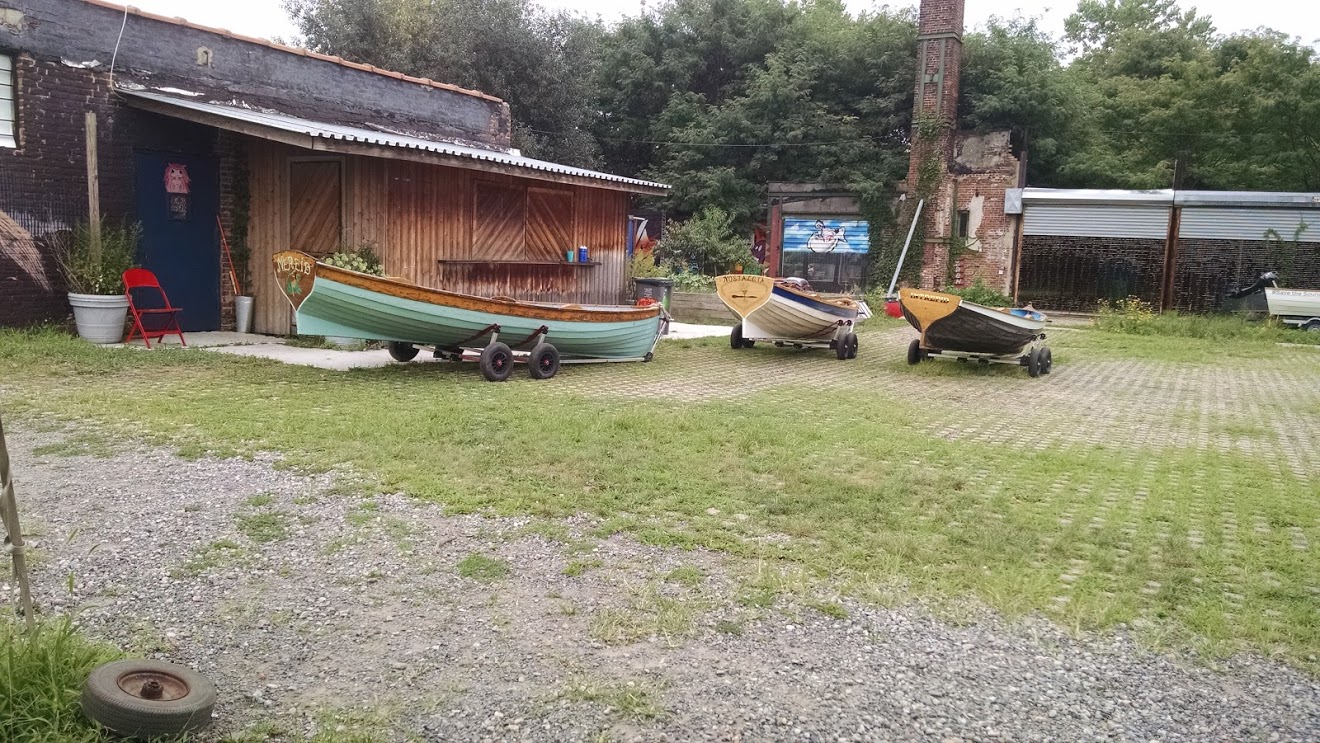Ongoing Research
Challenging Place Stigma through Urban Environmental Stewardship
In 2019, I embarked on an engaged research project with Rocking the Boat, a positive youth development organization in the South Bronx. The goal of the research was to identify how the organization’s environmental activities served its overall youth development mission.
Data collection included observation, group and individual interviews, and mind mapping. One key outcome of participating in Rocking the Boat’s water quality monitoring activities is that it gives youth an avenue for reshaping how they think and talk about the Bronx and the Bronx River. As one youth put it:
“Yeah, you know people say the South Bronx is like the dirtiest part of New York ever, but they need to go check their research because I got my research right here.”

Rocking the Boat Boat Yard
Enduring Outcomes in Rocking the Boat Alumni
I’m working with Rocking the Boat alumni social worker Stevi Feinberg to better understand how RTB alums perceive RTB’s long-term impacts on their lives. As of March, 2021, we are actively collecting survey data from alumni and will begin interviewing interested alums in April. To hear a little more about this research, watch this short video.

RTB Alum Survey Advertisement
Place Stigma and the Bronx River: A Text Mining Analysis
In the 1970s, the Bronx became synonymous worldwide as a symbol of urban decay and dysfunction, as of decades disinvestment culminated in whole cenus tracks losing nearly all of their housing to abandonment and to fires. Youth participating in Rocking the Boat are highly aware of their borough’s stigma even as they contest it. How has the Bronx River featured in the public imagination over the last 50 years? I seek to answer this question through topic modeling and sentiment analysis of New York Times articles and Bronx River related tweets.
Citizen Science and Empowerment: A Systematic Review
PI: Rina Hauptfield, Colorado Statue University
Co-authors: Dr. Xoco Shinbrot, Cornell University & Miguel Jimenez, National Audubon Society
Does public participation in scientific research (PPSR) empower participants? In this systematic review, we reviewed articles that specifically claimed empowerment as a participant outcome and delve into the depth of evidence supporting these claims.